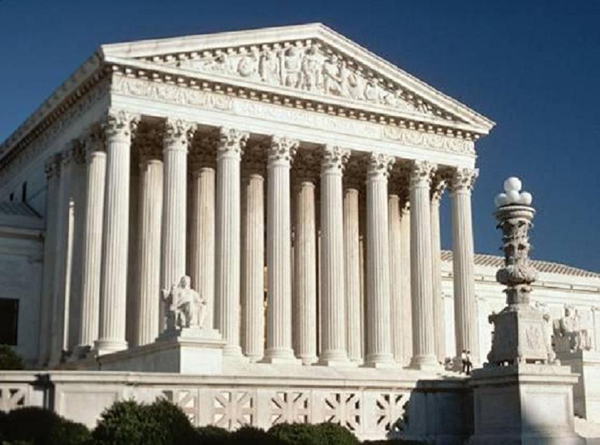The U.S. Supreme Court on Wednesday, Jan. 11, issued a ruling exempting religious groups from nondiscrimination in hiring laws when it comes to ministers and those who teach religious subjects, according to this report in The New York Times.
“The interest of society in the enforcement of employment discrimination statutes is undoubtedly important,” Chief Justice John G. Roberts Jr. wrote. “But so, too, is the interest of religious groups in choosing who will preach their beliefs, teach their faith and carry out their mission.”
The ruling came in the case Hosanna-Tabor Church v. Equal Employment Opportunity Commission, in which former teacher Cheryl Perich claimed she was fired from her job at a Lutheran School in Redford, Mich., because she pursued a discrimination complaint based on a disability (Perich suffers from narcolepsy).
School officials said Perich — who was called a teacher that had completed religious training and who taught mostly secular classes but did also teach a religion class and attend chapel with her class — was fired because she violated church doctrine by pursuing litigation rather than trying to resolve the dispute within the church.
The Rev. Barry Lynn, executive director of Americans United for Separation of Church and State, said he fears the court’s decision this week will make it harder to combat the “social evil” of “blatant discrimination,” and suggested the ruling could prevent pastors who are sexually harassed from filing suit against their harassers.
But Bishop William E. Lori, chair of the United States Conference of Catholic Bishops‘ ad hoc committee for religious liberty, told the Times the ruling was “a great day for the First Amendment.” The Catholic Church has in some cases shut down programs to avoid having to abide by state and federal nondiscrimination laws protecting LGBT people, including the decision in December by bishops in Illinois to close most of their church’s adoption and foster care services rather than allow same-sex couples to adopt or foster children, as per new state requirements for agencies that receive state funds. Catholic Church officials in Washington, D.C., and Massachussets had made similar decisions previously.
Although this particular case had nothing at all to do with issues of sexual orientation or gender identity, it’s not hard to imagine how easily it can be used against the LGBT community. As Florida Courier columnist Charles W. Cherry II writes: “Can predominately white churches and religious schools now fire black ‘ministers’ (who are also teachers) because of their race and be legally protected from a race discrimination lawsuit? Sounds like it to me — and the court ruled unanimously. Could this case be interpreted to mean that black churches can now legally fire effeminate (or openly gay) ‘ministers’ of music without worrying about a lawsuit in places where sexual orientation is legally protected?”

















This ruling sets a very dangerous precedent. It institutionalized discrimination and allows people to do it under the guise of religion. This Supreme Court, a Bush legacy, is dismantling the constitution and turning our country over to corporations and the far right.
I hope the purveyors of fairy takes (religion) start firing all the gay and non white people to further expose their narrow minded deluded agenda of lies and bigotry.
I hope the purveyors of fairy tales (religion) start firing gay and non white people to further expose their narrow minded deluded agenda of lies and bigotry.
I find this ruling totally dangerous! I am so sick of the so called “religious” getting exemptions. My point of view is if a law is good for some people it should be good for all people. STOP THE RELIGIOUS EXEMPTIONS WE ARE ALL EQUAL under the Constitution. If you don’t like the American Constitution & Laws GET OUT & MOVE TO ANOTHER COUNTRY.